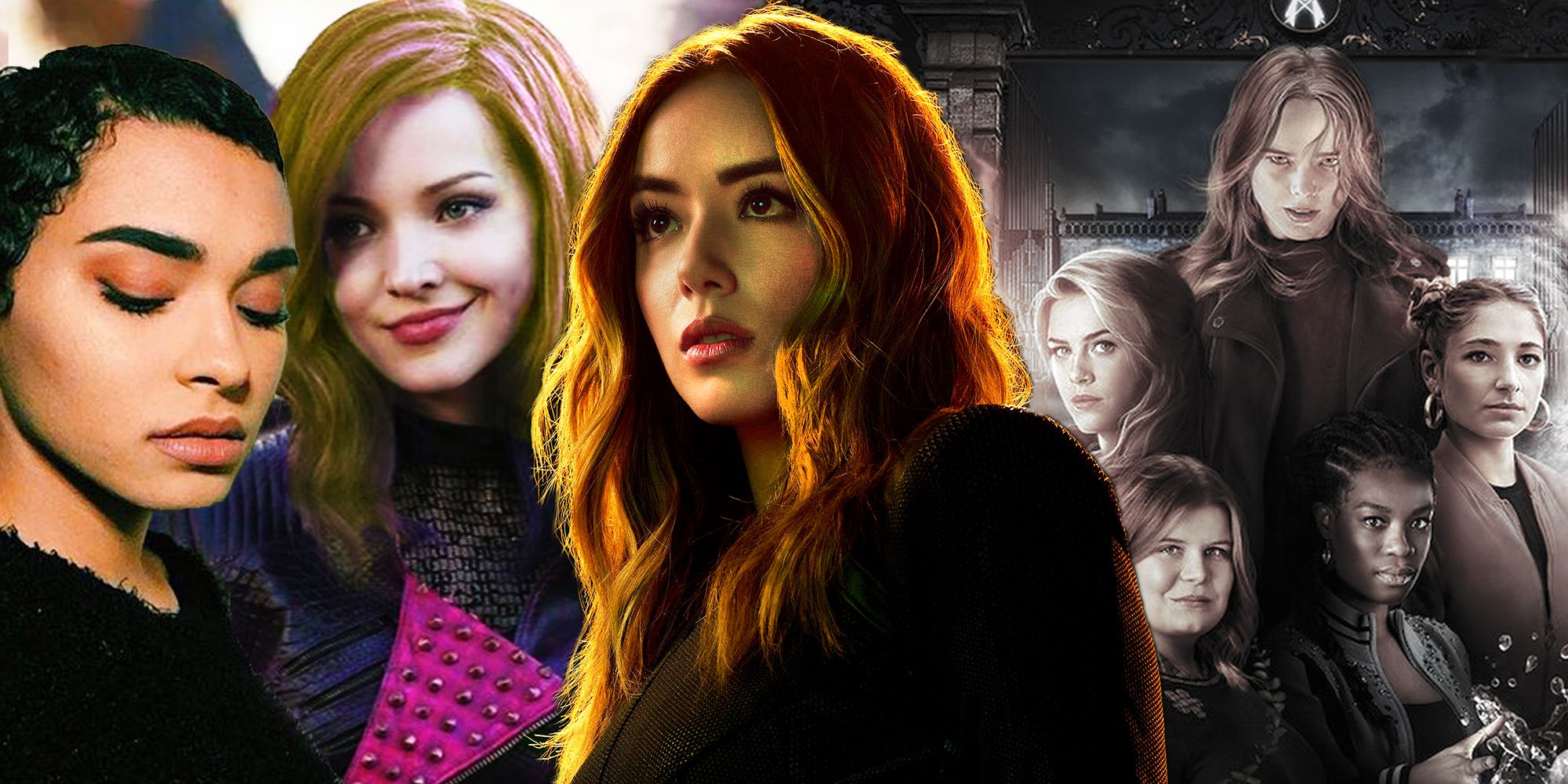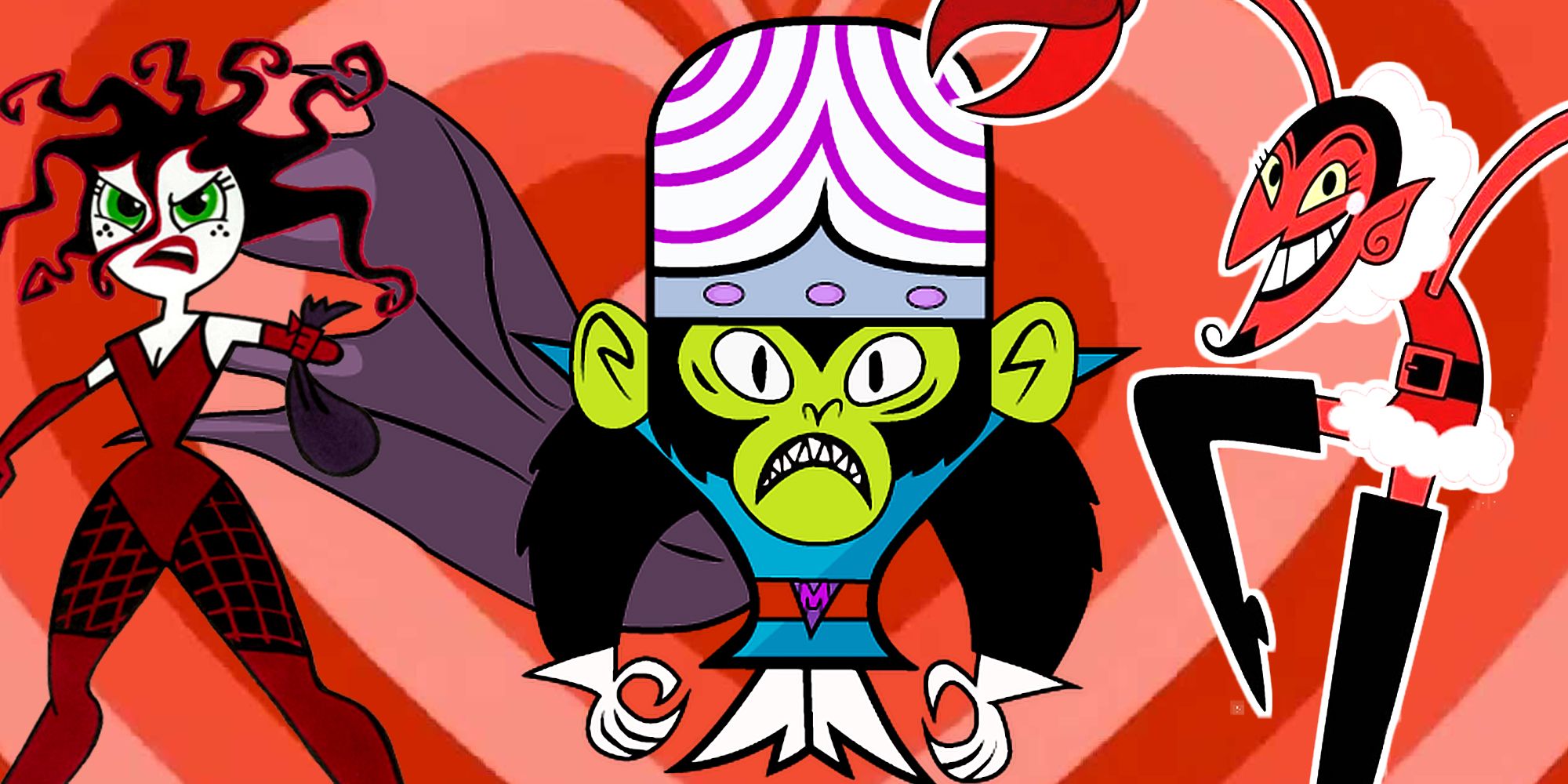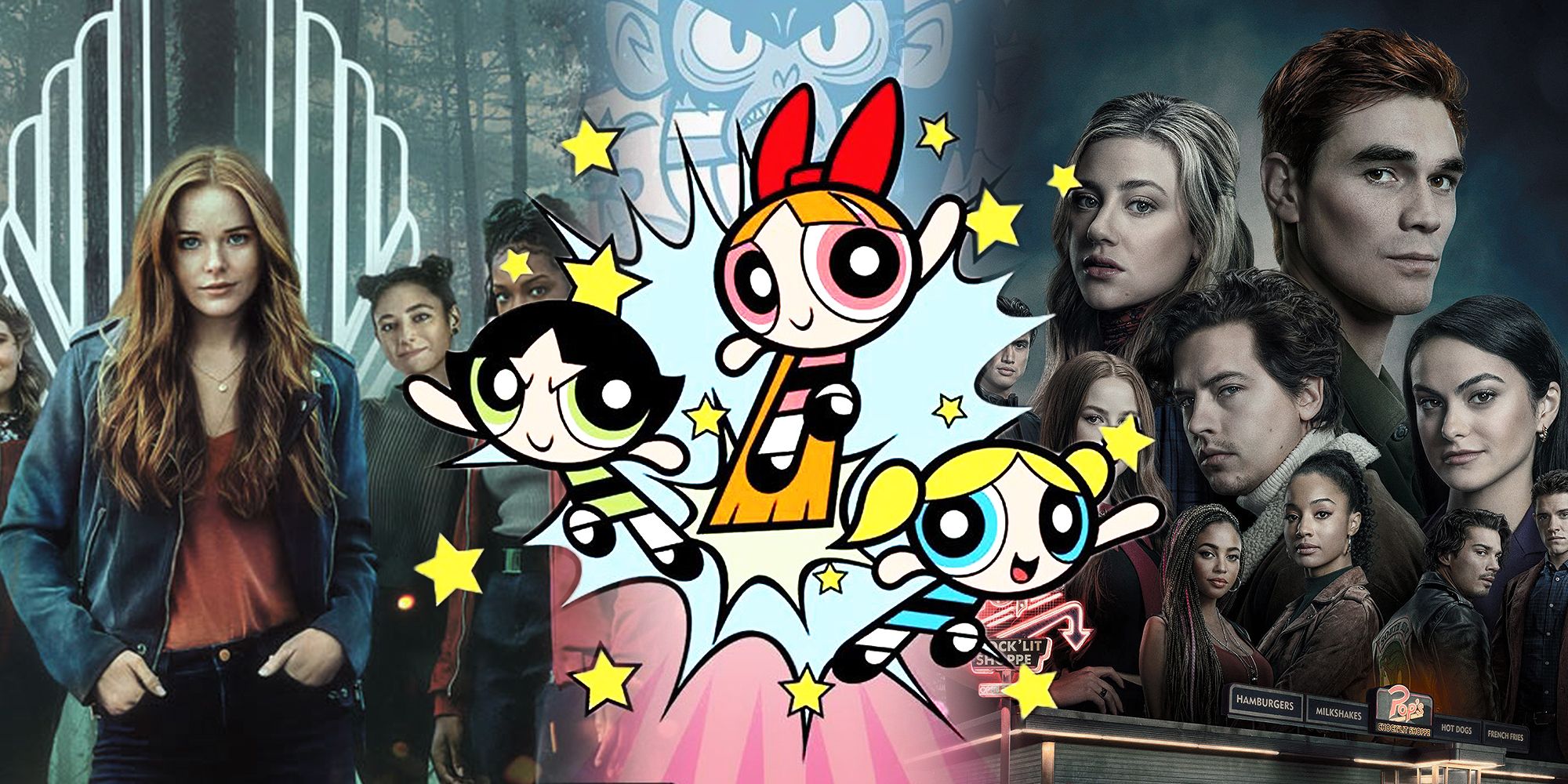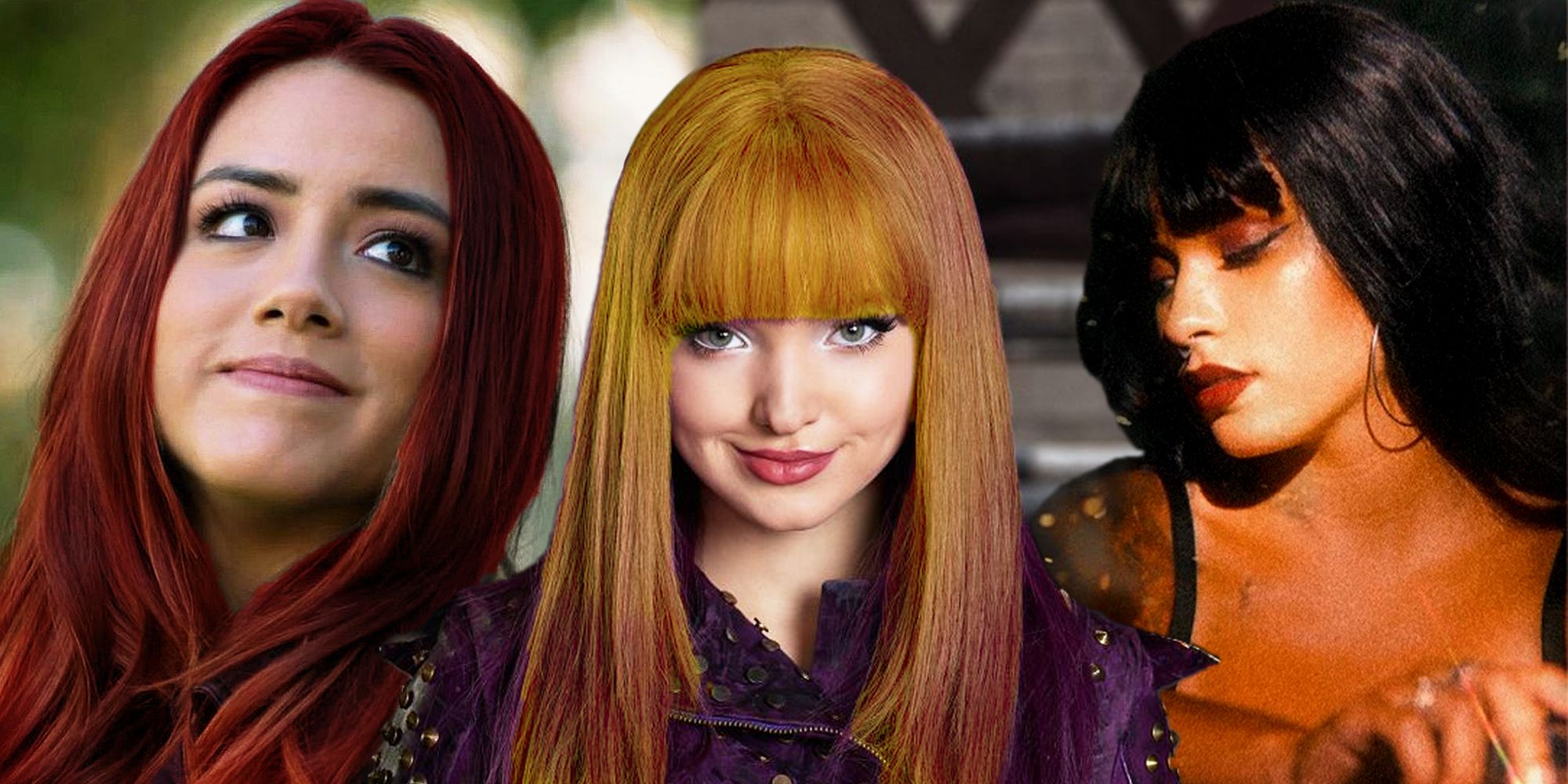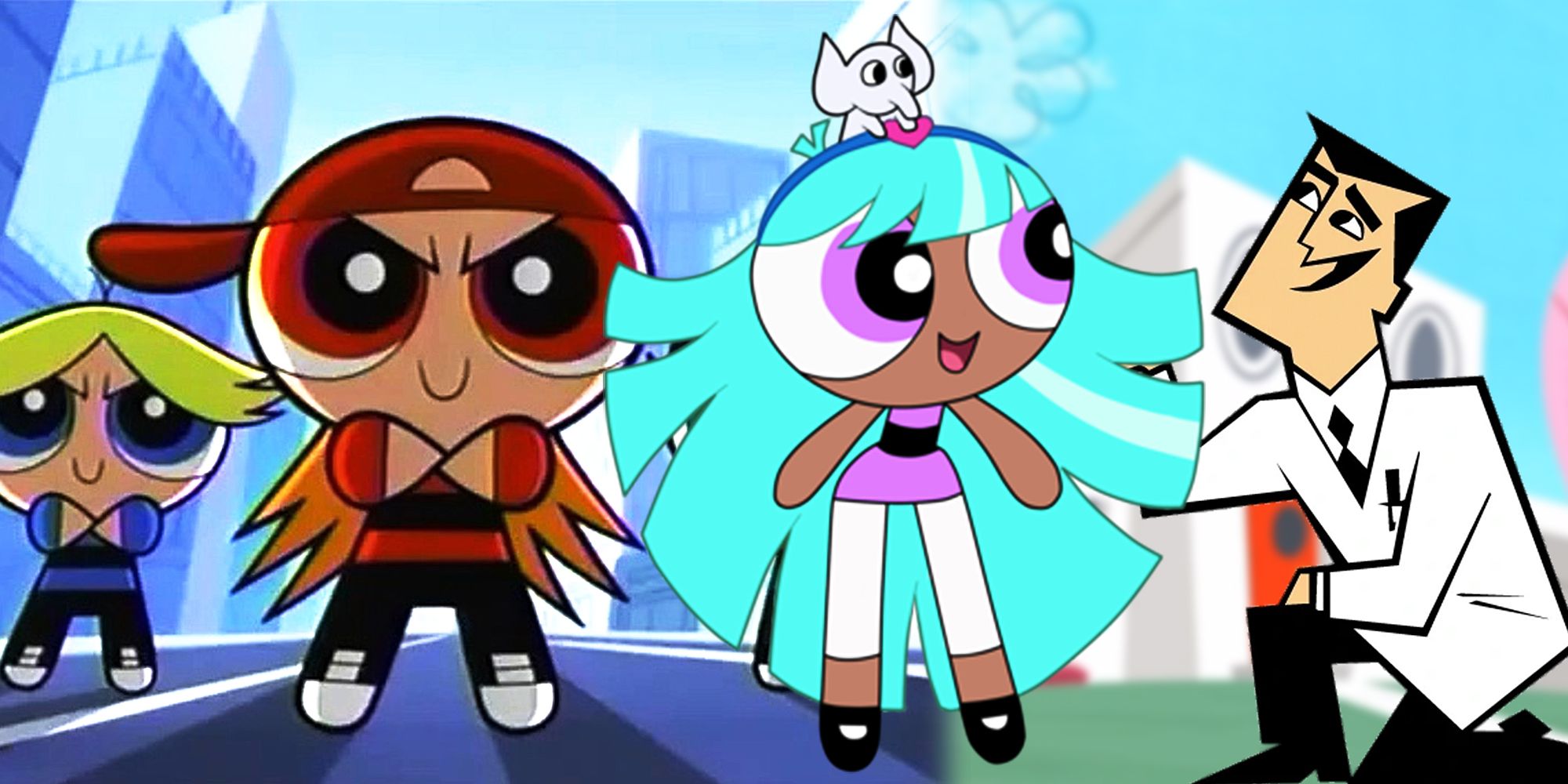The CW's upcoming Powerpuff Girls reboot can learn a lot from the mistakes of Fate: The Winx Saga. The original Powerpuff Girls cartoon officially debuted on Cartoon Network in 1998 to widespread acclaim. After seven years on air, several comic books, an animated movie, and an anime, The Powerpuff Girls stands as one of the most popular cartoons ever. Now, The CW has ordered a pilot for the live-action adaptation, which is reportedly set several years after the protagonists have moved on from crime-fighting.
Live-action adaptations of popular titles have been common for a long while now. These tend to gravitate toward the dark teenage drama genre, as seems to also be the case with the CW's Powerpuff Girls live-action series, where Blossom, Bubbles, and Buttercup resent their previous life as child superheroes. Shows like Riverdale, The Chilling Adventures of Sabrina, and Titans have similarly put a twist on their original premises, with the latest property to be reimagined being Fate: The Winx Saga. Although they have improved on certain aspects of their source materials, they're still riddled by many worn-out tropes that prevent them from having a truly unique identity.
The Powerpuff Girls has plenty of potential as a darker live-action show, even more so considering that the upcoming reboot intends to approach the story from a brand new angle. However, it needs to avoid the tropes that plague shows like Fate: The Winx Saga. Here's how.
The Powerpuff Girls Reboot Should Develop Complex Characters
Besides the infamous Winx Saga whitewashing of Musa and the notable absence of Flora, one of the main problems Fate: The Winx Saga has with its characters is their inner development. Supporting characters like Aisha lack a solid backstory and only seem to follow the main characters without developing their own identity. Even Bloom, the protagonist in both the cartoon and the live-action show, is left as an arbitrarily troubled teen who refuses to evolve. On the contrary, the original Powerpuff Girls cartoon is filled with characters with very distinctive personalities regardless of prominence or screen time. All of the show's episodes center around the characters' complex personalities and every villain has the opportunity to redeem themselves.
The Powerpuff Girls live-action reboot should put character development front and center. It would be easy to flip Bubbles' typical cheerfulness into bitterness to subvert her character, for instance, but such reversals are too basic. Instead, the show should explore more subtle transformations by crafting characters with more than one defining trait — with fears and desires that slowly shift as the series evolves. The opportunity to depict the Powerpuff Girls as more mature individuals is already there, it's just a matter of focusing on the right aspects of the heroes' adult life.
The Powerpuff Girls Reboot Should Embrace Its Silliness
Logically, the Powerpuff Girls reboot needs to be more realistic than the cartoon. However, it doesn't have to be as excessively dark and angsty as many other live-action adaptations. Fate: The Winx Saga turned fairies into wingless magicians, and although they're still powerful, it's easy to forget that they're not regular teenagers. Like the original Winx, the original Powerpuff Girls' cartoon silliness was important because it wasn’t dumb, it offered lots of clever humor and interesting stories.
It would be beneficial for the reboot to strike that balance between straightforward action/fantasy for a young audience and more serious themes for older viewers. It's important to remember that the original show followed genetically-engineered kindergarten superheroes who fought anthropomorphic apes (Mojo Jojo) and disco monsters (The Boogie Man). The details don't have to make real-life sense as much as they have to represent real-life struggles.
The Powerpuff Girls Reboot Should Tackle Serious Themes (In A Fun Way)
As extravagant as the Powerpuff Girls' battles are, each episode has a meaningful message that could apply to real-life situations — if not, the story center around situations anyone could relate with. For instance, the episode "The Powerpuff Girls' Best Rainy Day Adventure Ever" is about the boredom that comes with a rainy day. In the Powerpuff Girls' case, nobody is committing any crime and they don't have to save the day. It's a very simple premise that suggests negative experiences are also necessary every once in a while, and it proves that fantasy doesn't always have to be about world-changing wars or forced love triangles.
Fate: The Winx Saga had the potential to reveal that the Burned Ones are the victims of an evil curse themselves, but unfortunately glossed over the dark implications of their predicament in favor of the angsty drama of the protagonists. The Powerpuff Girls reboot could avoid this issue with stories like the original show's "Blossom3", where the villain Duplikate created two clones of Blossom. Instead of becoming the typical evil counterparts of the hero, they ended up teaming up with the real Blossom and later departed to pursue different careers. Ironically, many dark live-action adaptations tend to oversimplify themes like friendship, heroism, and identity while trying to be more mature. Instead of shoehorning sex, alcohol, and drugs into the reboot's plot and dialog, the new series should explore more casual topics with a new twist on the source material.
The Powerpuff Girls Is A Show For Everybody
The lightheartedness of the original Powerpuff Girls is precisely what makes it so accessible to viewers of all ages, genders, and cultural backgrounds. The cartoon explored serious topics and developed compelling characters with relatable struggles, all while taking advantage of its humor for all ages and visually striking action. Its exploration of themes like heroism, friendship, responsibility, and identity was ahead of its time.
Shows in the same genre as Fate: The Winx Saga have a specific target audience, namely those viewers who like dark fantasy and the fans of the original show — two groups that tend to be hard to bring together. Instead of sacrificing one for the other, the Powerpuff Girls reboot should have its defined audience as any other CW title does, but stand out as a show that can be understood and enjoyed by all kinds of viewers. So, toning down on the forced mature topics and the overuse of young adult tropes would be the right decision. By making the Powerpuff Girls reboot accessible to everybody, the new series would be achieving the same long-lasting quality as the original series while updating it for a contemporary audience.

